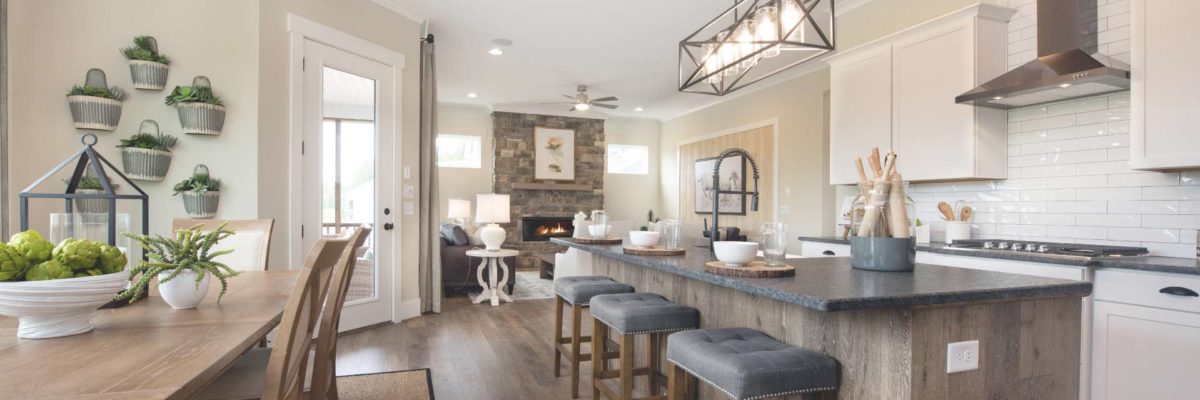- new-build townhomes & single-family homes in wake forest
- 919.804.1926

Is It Cheaper to Buy or Build a House? Complete Guide
September 14, 2022
Are New Construction Homes Worth It?
October 31, 20227 Steps on How to Choose a Home Builder For Your House Project

Many people share a dream to build their new home, and to do that, necessary steps are required. One of the most important steps that will have a huge impact on how you remember your experience working with a home builder is choosing the right one for your home.
How to Choose a Home Builder
Choosing a home builder is something you shouldn’t take lightly, and invest time investigating to make the best decision for your future dream home. Home builders vary with respect to their experience level, home building process, quality of work, and communication style. Finding the constructor that has a good combination of qualities to fit your needs is a deciding factor in how you progress your home building experience.
This blog has seven tips to help you find and choose the home builder most fitting to your needs and wants.
Choose the House Type that You Want Before You Start Your Search
There are all sorts of house constructions here and there, and not all of them will be able to satisfy your needs. Once you choose the house type you want, you can then start searching for the most fitting home builders.
Home builders can specialize in building houses and specific custom-made homes, so you need to learn the differences between them and discover which is the right home builder for you and your home-building budget.
In general, there’s a wide variety of house specialization types that home builders can have, and they will be differentiated by other areas such as two-story homes, villas, houses designed for the elderly, and more. Home builders can also be highly skilled in remodeling homes rather than building them from scratch. So, if you’re looking to create a new home, ensure your constructor is not a renovator beforehand.
The more you pinpoint what you’re looking for to build your home, the easier it will be to find the right home builder for your project. Because when you think about it, it makes no sense to waste time on a home builder specializing in custom homes. Think of it this way, if a custom-built home does not fall within your anticipated budget or if you just don’t have an interest in a custom-built home, you don’t need one.
Researching for the Right Construction With Good Sources
Your local home builder’s association is a great place to start your research. Find a local association, and then ask for a list of builders who either build the type of home you’re interested in or build in the community you’re interested in. You can also get builder referrals from friends, family, colleagues, or even your real estate agent.
Real estate agents are a great source of general information about builders and home buying. They can provide you with professional knowledge about the reputation and quality of a local builder.
Don’t Let the Basics Fool You; Review Them
After developing your short list of home builder candidates, review your basic information.
- Are they licensed? Many home builders list their license numbers on their websites. At the very least, it should be in their marketing efforts to show as proof to their potential clients.
- Are they local? Many buyers prefer to hire local builders who know the area and employ local people.
- What is their reputation? Thanks to the Internet, you can easily check a builder’s Yelp or Google reviews, Facebook page, and other social media pages to read what others say about them.
Finally, you can always call the city hall and speak to someone in the building inspection or economic development department. They should be able to tell you if the builder has been doing a good job or not.
Get Out There and Visit Construction Sites For a Closer Look
It’s as easy as finding active construction sites where you know the home builders you’re interested in are working. Look for signs of quality materials and safe work practices. You can always tour the model home and learn more. Do you like what you see? Are you comfortable with how the builders treat you? What does the finished product look like (inside and out)? These are all crucial questions to aid in your home builder selection process.
Another great way to get more information is to talk to homeowners in the communities you’re interested in and check out the builder’s vendors. Ask if the builder had a good follow-up, if the job was completed on time and within the budget, and if they were satisfied with the quality of the home builder’s work.
Also, check the builder’s relationships with subcontractors and supply houses; find out if they pay their bills. This is a sign of builders encountering delays in receiving materials and struggling to maintain quality equipment if they are behind on payments.
Don’t be Shy! Interview Your Prospect List of Home Builders
Once you’ve reduced your list of potential home builders, you can set up a meeting with each to interview them and get to know them more, whether the builder themselves or their sales representatives. This is your chance to ask questions, see how the builder treats customers, and ask for their recommendation letters or referrals.
Be sure to ask about the process and typical time frame for completion and whether the workers are employees or subcontractors. Builders who use several subcontractors may have more trouble meeting the deadline than those who employ their workers.
Make This Conversation a Two-Way Street and Let the Builder Ask Questions, Too
Not surprisingly, the builder or sales representative will have questions for you and what your expectations are for the home they might potentially build for you. This will help them determine if they would be a good fit for you or if another builder (or even one of their communities) would be a better fit. Conversations like this help builders match buyers with the best solutions and can help avoid headaches due to miscommunication or misunderstandings later on.
Trust Your Gut Feeling
Yes, checking credentials, references, and even visiting a model home is all part of the process. But, not just because everything looks good on paper doesn’t mean it’s the right thing for you. You need to feel comfortable with the builder.
You should be able to ask questions freely and receive satisfactory answers. The more transparent a builder is, the better. At the same time, different people require different communication styles, so make sure yours and your new constructors mesh well.
Take Your Time
Last but not least, keep looking if you don’t feel like you’re getting honest answers or feel like you and the builder aren’t communicating well. Inevitably, you will encounter obstacles and challenges while building your dream home. And if you trust your builder and have a good relationship with them from the start, overcoming these challenges will be much easier.
Ideally, you should find a builder who is honest and realistic about the process and the challenges ahead but will also work hard to make the home-building process as easy as possible. If you take your time doing the research, you will find the right home builder for you.

